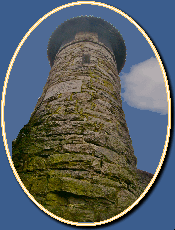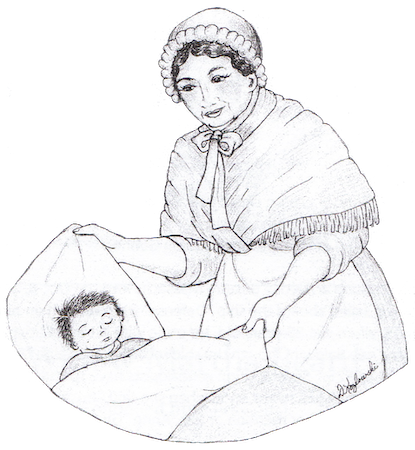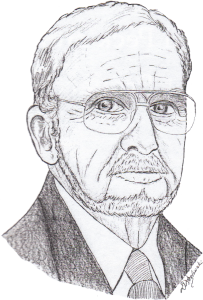In Early colonial days the primacy of the man of the house was sacrosanct. If you reviewed the history of Milford Colony you would think that there were man brave men but only two women. This was not the case of course. Milford was full of brave women dedicated to home building and child rearing, and when the need arose, just about anything a man could do. Women in the English system were under their father's until married, then all her possessions were "owned" by her husband; some might say, "as was she." Career women were a rarity, as was any "spinster" who retained control, of her own fortune, usually inherited. The Widow Martha Beard was nearly unique of her gender in her independence. She was one of the first settlers and one of the two women separately accounted on the rolls of the colony, mere wives and daughters being considered simply an annex of the man of the house.
Martha Beard was born ca. 1603 Epping in Essex, England, sailed from England with the Reverends Davenport and Prudden party from England, with her husband and five children, and settled in Milford, CT, in 1639. Her husband, whose name tradition says was James, died during the passage from England to America
She was admitted to the First Congregational Church of Milford on November I, 1640.
This church was organized in 1639' She died June ll,1649-
The names of the first settlers are engraved on the Memorial Bridge and with the names
is inscribed this quotation from Straughton of the Massachusetts Colony: "God sifted a
whole nation that he might send choice seed-grain over into this wilderness."
These first settlers located on each side of the Mill River, today's Wepawaug River, and West End Brook (the almost unnoticed stream which still runs behind today's West Avenue). Their "house lots" were laid out in parallel slips, containing about three acres each. Some had double lots - two slips adjoining.
In consideration of her affliction, the Widow Martha Beard was given an extra amount of "house lott" her share being 4 acres 1 rod. Each planter had to erect a good house on his lot within three years, or it was to go back to the town (presumably for redistribution).
At a general meeting held November 22, l639, it was voted how many acres of "house lott" upland and meadow should be assigned to each of the settlers, of whom only six had as large a portion as widow Martha Beard. she had 6 acres for her house lot, 37-1/2 of upland and 19 of meadow. At three different times, the allotment of land given to her by the town was increased. It is not recorded what service the young woman did for the Town, but it obviously demanded the respect and gratitude of her townsfolk.
Her oldest child, John, fought as a captain in King Phillip's War. After the defeat of the Pequots in 1635, King Phillip and his brother were likened to Kings Phillip and Alexander of Ancient Greece for their military prowess and noble bearing. Phillip, who was really named Metacom, grandson of Massasoit the Wampanoag who welcomed the Pilgrims in 1620, attempted to wage a war of annihilation against the colonists in 1675. Martha Beard did not actually experience the greatest threat to its existence Milford ever faced, she died while still young on June ll,1649.
Another descendant, George W. Baird, served in the Civil War and went on to become a Brigadier General. He received the Medal of Honor for his deeds at Bear Paw Mountain in Montana while battling the Nez Perce Indians under the famed Chief Joseph. General Baird is a Milford Hall of Fame Honoree (2008).
Martha Beard is one of the few, if any, women who was name was independently engraved on the Memorial Bridge in Milford.
Mr. Charles C. Beard, of Shelton, CT, has in his possession a rapier type sword which, tradition says, was brought from England by Martha Beard and her husband.



